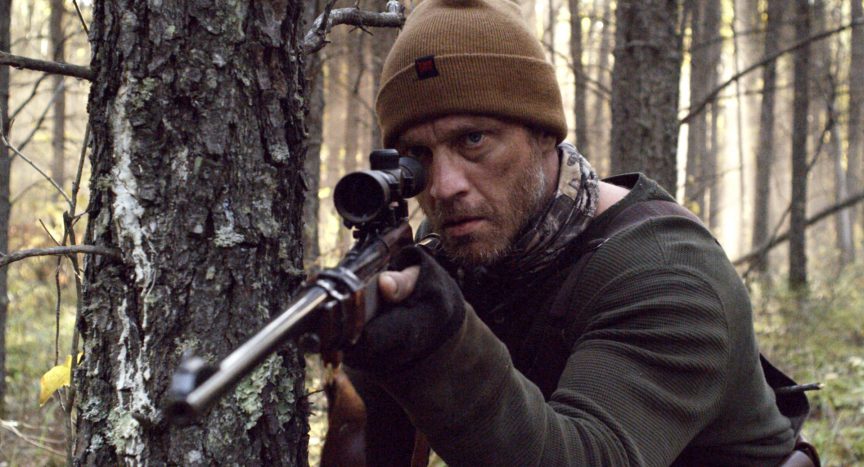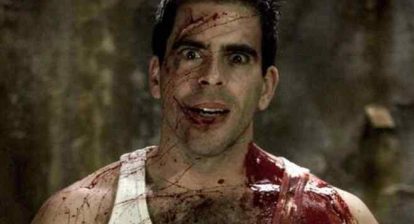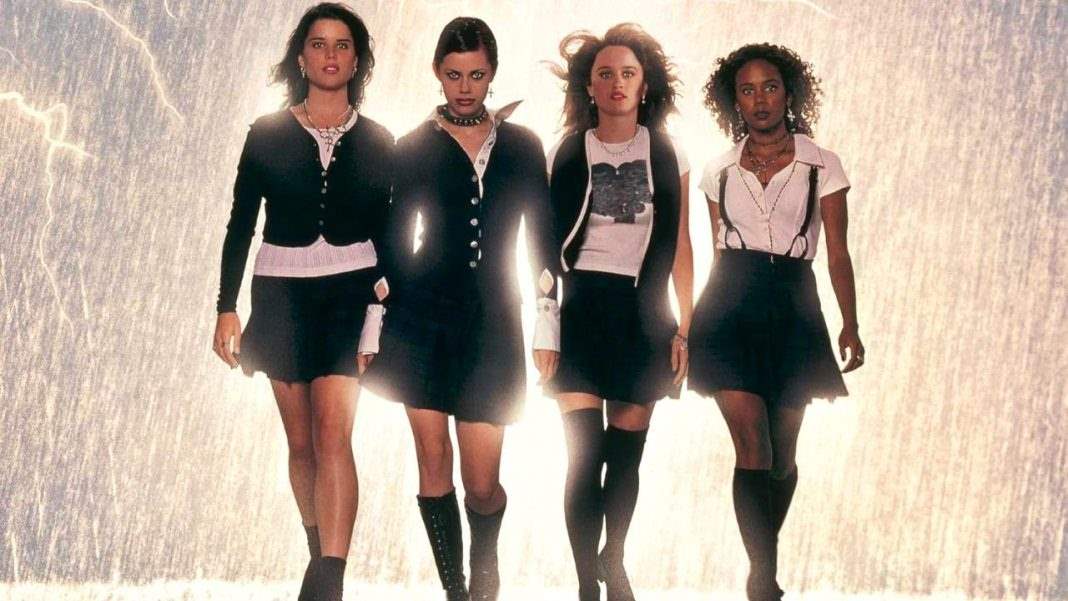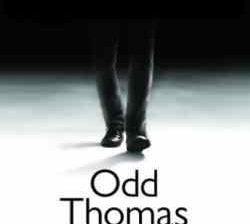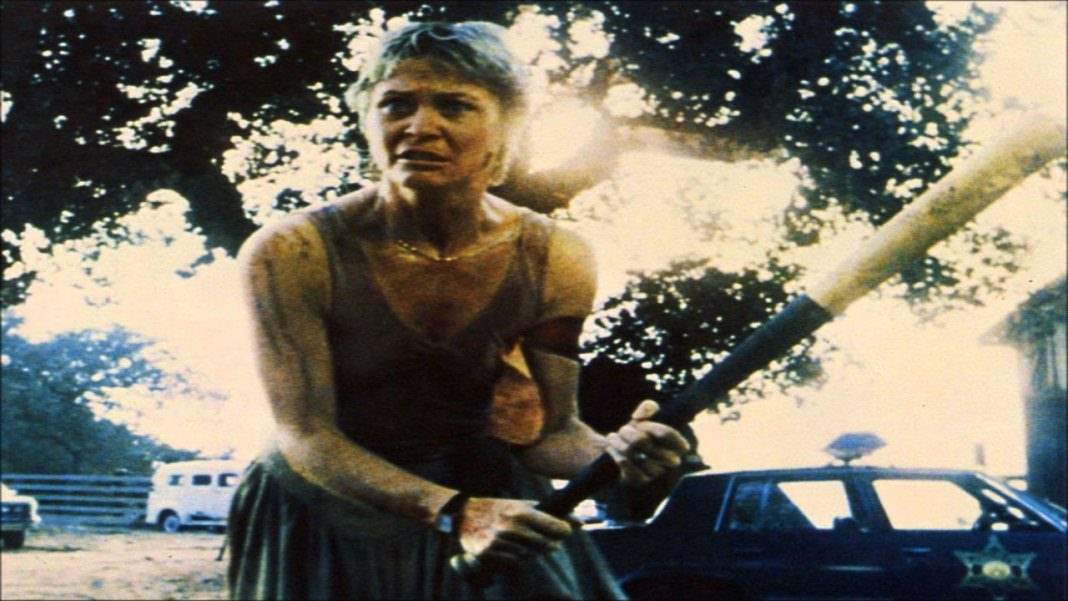Hunter Hunter is one of my favorite films this year. With a solid cast and strong storyline, it’s sure to create some buzz upon release and beyond. I was excited to speak with Shawn Linden and find out more about his work on this project. Shawn wrote and directed the film, and also served on the production team.
While talking with Wicked Horror, he shared insight into this upcoming thriller, discussing inspiration, casting, and his origins in the industry. Read on for the full exchange, and be sure to catch the film when it releases on December 18.
WICKED HORROR: Congratulations on the upcoming release of Hunter Hunter! I really enjoyed this film and think it’s going to be well-received by audiences. It’s emotional and gripping and leaves an impact on the viewer.
I saw this as a thriller, with elements of psychological horror. The performances were great across the board, and it took me through a range of emotions while viewing. As a reader and film lover, I’m always interested in the origin of a story. I’m curious—where did your inspiration for Hunter Hunter come from?
SHAWN LINDEN: Well, I guess deep down, I consider the movie a kind of fairy tale about predators. Before the script existed, one of the biggest influences in my life were Grimm’s Fairy Tales. Those kind of fairy tales, before they were whitewashed for modern audiences, they were quite violent fables. So that was one of the things that really influenced the script when it was conceived. There was a bunch of other stuff, as I’m a big fan of the so-called “old school” horror, like The Shining. Stuff like that which has a gradual and measured build-up to a very fitting or shocking ending. One of my favorite movies is the Dutch film, The Vanishing, which is essentially a bloodless movie that turns into complete terror toward the end. That movie was always in the back of my head when the script was being written—of being not gratuitous with violence and gore, but having it there because it has to be, because that’s what the story dictates. I don’t want to give the ending away, but once you see it, you can see how it ended that way and wonder if there was any more natural way for it to conclude. Just because it is so consistent with the rest of the movie—or at least that was the intent.
See Also: Non-Horror Films that Deliver High Level Suspense Without Gore
WICKED HORROR: It looks like you’ve worked on previous projects as both a writer and director, and on some in just a writing role. How does playing both roles compare to just one? Were there challenges that came along with directing in addition to writing?
SHAWN LINDEN: Well the scripts that I write for me to direct specifically are very precious to me, and they are written with the awareness that the budget will be low enough for somebody in my position to acquire that kind of money. When I’m a writer for other people, if it’s my original idea, I do have the same feeling of preciousness towards it. But, if it’s not mine and I’m kind of a hired gun, then that closeness is not there. So it makes it both easier and more difficult, if that makes sense. It’s not as effortless as if I’m really inspired by something personal, but it is a lot easier to slog through because I’m not attached to every single precious moment.
WICKED HORROR: I’d imagine that directing something you’ve written allows you more ownership regarding how your work comes across on the screen.
SHAWN LINDEN: If you’re there and present, contributing at every single point, it’s not labor, but it’s artistically like that if you’re there at its conception all the way up to the execution. It’s really hard to not take that stuff personally, whereas writing for somebody else, it’s essentially mercenary work and you’re just trying to do a good job.
WICKED HORROR: How did you get started in the film industry?
SHAWN LINDEN: I got into screenwriting because I always wanted to be a novelist when I was a kid, until I figured out that nobody was reading books that they weren’t forced to in school. So I re-oriented towards a more consumed form of media. I’d written my first script when I was 21 and still in school. That wound up getting some success in screenplay competitions and then two different companies wanted the script. The two companies allowed me to get an agent to resolve the incident and from there I was pretty much a working writer. I also worked in the local film industry for most of my twenties, as a set decorator and props master. So that was my kind of education in the nuts and bolts of filmmaking.
WICKED HORROR: What are some favorite films or books that inspired you?
SHAWN LINDEN: As a child, The Dark Crystal—it’ll always be my favorite film. Dark puppet movies are always going to be my lifelong ambition to make someday. There was a movie that was playing at the time I made the realization that I could be a filmmaker, and that was Reservoir Dogs by Quentin Tarantino. I saw that in high school, and I remember being down in my friend’s basement watching it, thinking “If somebody can make something so compelling, in one room with four actors all dressed the same, then it would be possible for me to do that too.” So that movie made me realize that this was something viable that I could do as long as I was creative.
Also see: Not Quite Horror: Reservoir Dogs (1992)
WICKED HORROR: The character development in this story is very well done. Viewers will connect well with the film as it’s easy to empathize with the characters. The actors did a great job, and I was especially impressed with Summer Howell. She did an amazing job displaying both naiveté and maturity in her role. Then you had a team of veteran actors alongside her. What was it like working with this crew? Did you take part in the casting process?
SHAWN LINDEN: Yeah, I was producer on the movie too, so I had my fingers stuck in everything. As you said, it was an incredibly well-balanced cast. I’ve said this in multiple interviews this week, but Summer’s character was an eight-year old boy before I met her. I was casting for an eight-year old boy, and our casting director said “You should look at this person, even though I know it’s not what the script is looking for”, and so I agreed. From the moment that she did her audition, there was no question I was going to have to turn this person into a twelve or thirteen-year old girl. She was absolutely amazing from the start, and Camille, Devon, and Nick were all just an absolute joy to work with—and total professionals. They jumped in with a dedication that I wouldn’t have been able to muster up. We were all out in the middle of nowhere, and the wilderness is supposed to be very treacherous and uncaring. And that’s where we were—in treacherous, uncaring wilderness with no running water and no electricity. For people who are used to the amenities that are on typical film productions, I’d imagine that took a lot of strength and resilience. They all did it, not only without a single complaint, but really looking forward to going through that experience. They were totally game right from the start, and that saved the film and also made the film.

WICKED HORROR: The setting was very beautiful and added so much atmosphere to the film—almost as a character on its own.
SHAWN LINDEN: Thank you. We had to go out into such a far-flung place away from any supply lines, because we were looking specifically for those great picturesque vistas—particularly before nature starts to become an uncaring, almost-enemy in the story. At the beginning it’s very scenic and idyllic, and to do that we had to lug heavy cameras all the way through, up cliffs and things like that.
WICKED HORROR: This film is likely to make a major impact on viewers, and has appeal across genres. It’s emotionally-charged, compelling, and memorable. There’s a lot of meaning to this film, but one takeaway was the fact that we can be prepared and vigilant toward imminent dangers in life, but sometimes we don’t realize the true threat is in the unexpected. It also shows both sides of the coin with regard to the good and evil that can exist in humanity. Is there a specific message that you were hoping to convey to viewers? What do you hope they take away from this film?
SHAWN LINDEN: Well, the ending is fairly nihilistic to any moral value that was trying to be proposed. Ultimately, I wanted to give the sense that in the woods, human beings are just another animal. The movie deals with the intersection of social laws versus the natural ones, and how the natural laws will pretty much always be there at the end, no matter how far the social laws go. I was really trying to convey that when you’re in the wild, you have to adhere to the wild’s rules, or you will fall victim to it. That was the kind of moral through line that I had—that morality is not the same when you’re out in the woods as opposed to when you’re in the city.
HUNTER HUNTER is available in Select Theaters, Digital and On Demand December 18th
Follow us on social media: Twitter, Facebook, Instagram, and YouTube
